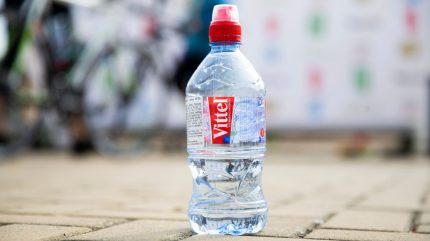
Nestlé may have been using banned treatments on three of its mineral waters produced at its Vosges production sites for more than 15 years, findings show.
An investigation released in April by the Directorate General for Competition Policy, Consumer Affairs and Fraud Control (DGCCRF), viewed by the French investigative news agency Mediapart, indicated the company had used “unauthorised filters since at least 2010” on its mineral water brands Vittel, Contrex and Hépar.
The fraud-prevention group also claimed it had found evidence Nestlé bought ultraviolet systems to treat its water products as far back as 2005, Mediapart reported.
According to estimations made by Mediapart investigators, such a move boosted the Vittel producer’s sales by €3bn ($3.26bn) as it was able to market the treated-water brands as natural mineral water.
Responding to the figures in the report, Nestlé told Just Drinks: “We formally refute the figures relayed by Mediapart, and the method of calculation on which they are based.”
The group added that “the unique mineral composition of our mineral waters has always been preserved, and no chemical treatment has ever been used”.

US Tariffs are shifting - will you react or anticipate?
Don’t let policy changes catch you off guard. Stay proactive with real-time data and expert analysis.
By GlobalDataThe news comes as the company is embroiled in an inquest into its water treatment, which launched in February this year. In January, Nestlé admitted it had violated French water laws through treating some of its bottled mineral waters.
In a statement, the group confirmed it had used microfiltration at its waters sites “at a finer level than was previously recognised by French authorities”.
The group added it had used “activated carbon filters and ultraviolet systems” that were “not in line with applicable French natural mineral water regulations”.
It said it had reported this to French authorities in 2021, and that they had “validated our use of this finer microfilter as consistent with the applicable regulatory framework”.
“At the same time, and under the control of the French authorities, we removed the treatments that were not permitted by France,” Nestlé said.
In April, France’s food safety authority, the Agency for Food, Environment and Occupational Health and Safety (ANSES) confirmed its uncertainty around the safety of Nestlé’s Vosges mineral waters.
At the time, the group confirmed in a statement to Just Drinks that its assessment “attests to an insufficient level of confidence” in the water quality.
In October 2023, ANSES was contacted by the health ministry agency direction générale de la santé (DGS) to assist the national health regulator Agence Régionale de Santé (ARS) in the assessment of French packaged waters.
In light of its discoveries, ANSES recommended the DGS to put in place a “reinforced surveillance plan” to assess “exploited resources” and track potential “microbiological indicators… especially those relating to viruses”.
Nestlé told Just Drinks that its bottled water products were all safe for consumption.



